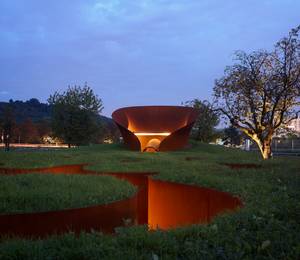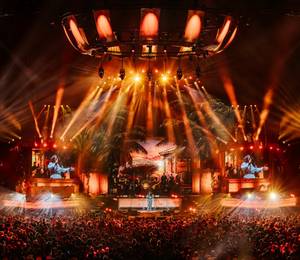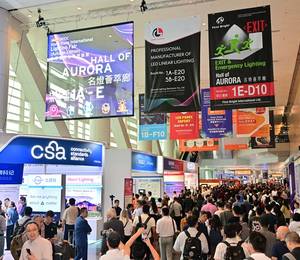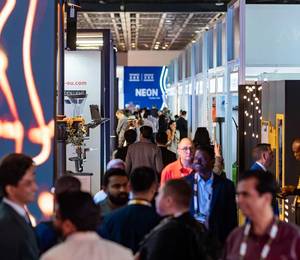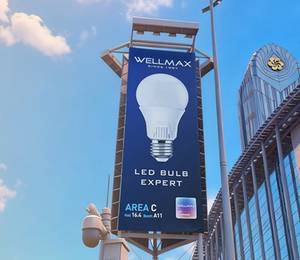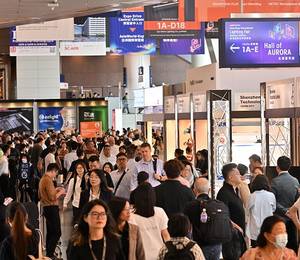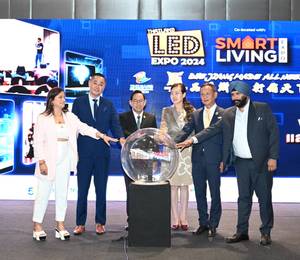The Clean Energy Ministerial (CEM) announced on the 7th of December, 2015, the formal launch of the Global Lighting Challenge (GLC)—a race to deploy 10 billion high-efficiency, high-quality, and affordable lighting products (such as LED bulbs) as quickly as possible. Lighting currently accounts for 15% of the global electricity consumption—more than the electricity generated by all the nuclear power stations in the world—and 5% of worldwide greenhouse gas emissions. An overnight global transition to highly efficient lighting could avoid more than 800 million metric tons of CO2 emissions, equivalent to displacing 684 coal-fired power plants for a year.
The GLC was announced by Sweden’s Minister of Energy Ibrahim Baylan, along with Ikea’s Chief Sustainability Officer Steve Howard and other CEM partners, during an event at the COP21 climate negotiations. Initial commitments to the GLC were also announced, including:
• India: India has a goal to deploy 770 million LED bulbs and 35 million street lights using energy efficient LED bulbs in 3 years’ time.
• Ikea: Ikea’s goal is to sell over 500 million LED bulbs to Ikea customers over the next 5 years (through the end of 2020).
• China: Will work to achieve the domestic sales of over 5 billion LED bulbs over the next 2 years.
“During the last years we have seen impressive innovations in the field of lighting products and solutions,” said Minister Baylan, “New lighting creates new opportunities in our societies and with multiple benefits. Sweden wants to support the transition to universal access of high-efficient and high-quality lighting, which is why we join this race with other CEM partners to realise the efficiency potential that exists in Sweden and the rest of the world.”
Additional commitments and supporting actions have been made by the governments of Australia, Germany, Mexico, Sweden, the United Kingdom, the United States as well as the State of Victoria in Australia. Commitments and supporting statements have also been collected from Cree, Philips, OSRAM, Enervee, and the DesignLights Consortium. The GLC will continue to seek additional commitments until the goal of 10 billion bulbs is achieved. All commitments are recognised on the GLC website, globallightingchallenge.org. An update on progress will take place during the seventh Clean Energy Ministerial (CEM7), which will be hosted by the United States in June 2016.
Super-efficient and affordable LEDs have sparked the development of a rapidly growing global commercial market for off-grid solar lighting, putting clean and safe lighting in reach for the 1.2 billion people who lack access to modern energy services around the world.
The GLC was introduced during the sixth Clean Energy Ministerial (CEM6) in May 2015, with 13 CEM member countries and the European Commission providing endorsements. It is designed as a public-private partnership to generate ambitious commitments from national and subnational governments, big and small businesses, retailers, and others to meet the goal of 10 billion bulbs.
About the GLC
The GLC brings together and elevates efforts to promote efficient lighting policies, including the CEM’s Super-efficient Equipment and Appliance Deployment (SEAD) initiative and Global Lighting Energy and Access Energy Partnership (Global LEAP), United Nations Environment Programme and Global Environment Facility’s en.lighten initiative, International Finance Corporation’s Lighting Global, International Energy Agency’s Energy Efficient End-Use Equipment Solid State Lighting Annex, and The Climate Group. The GLC has been endorsed by Australia, China, France, Germany, India, Indonesia, Korea, Mexico, Russia, South Africa, Sweden, the United Kingdom, the United States, and the European Commission.
About the CEM
The Clean Energy Ministerial is a forum of the world’s largest and most forward-leaning countries working together to accelerate the global transition to clean energy. The CEM pairs the high-level engagement of energy ministers with year-round technical initiatives and campaigns to drive faster deployment of clean energy policy and technology. CEM members are Australia, Brazil, Canada, China, Denmark, the European Commission, Finland, France, Germany, India, Indonesia, Italy, Japan, Korea, Mexico, Norway, Russia, Saudi Arabia, South Africa, Spain, Sweden, the United Arab Emirates, the United Kingdom, and the United States. Together, the 23 countries and the European Commission account for about 90% of the world’s clean energy investments and 75% of its greenhouse gas emissions.
